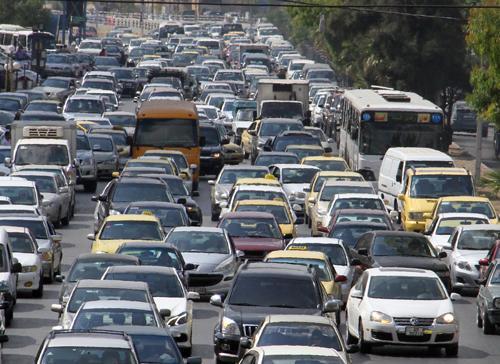You are here
Lack of public transportation proves bane for female labour participation — experts
By Elizabeth Turnbull - Aug 08,2019 - Last updated at Aug 08,2019

Lack of public transportation is an obstacle women face when looking for work in Jordan (JT file photo)
AMMAN — Forty-seven per cent of women in Jordan cite a lack of public transportation as the reason they have not joined the labour force, according to Transport Minister Anmar Khasawneh, which, experts say, points to greater gender inequalities in the Kingdom.
“We need to give Jordanian women confidence by creating a supportive environment for the development of their economic status even if this would lead to enacting laws that force society to treat women more fairly and equally,” economist Mazen Irsheid told The Jordan Times on Wednesday.
A lack of adequate transportation for Jordanian women means that their families may not feel comfortable with them leaving the house if it takes them longer to reach their jobs, leaving women with few alternatives due to the high costs of public transportation, according to economist and investment consultant, Wajdi Makhamreh.
“As such, low-income people who do not have access to cars spend a large percentage of their household resources on transportation at the expense of other necessities,” Makhamreh told The Jordan Times on Wednesday.
“At the same time when women get married they might have to leave their jobs given that they can’t afford someone to look after their kids,” he added.
While transportation is an obstacle these women face, Irsheid said that it is simply one of many hindrances women encounter when looking to work in Jordan, a country where the unemployment rate among females is twice that of males and where women face a wide and gendered wage gap, according to Irsheid.
“Most unpaid work in Jordan is carried out by women,” he added.
Among experts, proposed solutions to gender inequality vary, with some, among them economist Zayyan Zawaneh, urging employers to provide transportation for their respective employees, as well as pressing for the more obvious solution of government improvements to the public transportation system.
While addressing the same topic, others expressed doubts that such changes would be successfully implemented.
”I believe that the government can’t do much to rectify the problem of public transportation. It needs a lot of investments to fix the problem,” Makhamreh said, adding, “I don’t think that employers will invest a lot of money to transfer their employees to their homes, but that they will prefer employees who live nearby and can reach their jobs easily.”
Irsheid cited the idea of a “positive discrimination law”, which uses quotas in both parliaments and companies to correct unfair treatment of women and to provide for future equal opportunities, and suggested that more attention should be paid to the family economy which focuses on empowering women through micro-enterprise and micro-credit.
Related Articles
AMMAN — Nearly 45 per cent of workers were employed in the informal economy, in 2012, a phenomenon which experts say financially weakens the
AMMAN — Calls for the wider acceptance of remote work and flexible working hours have grown louder amongst the public as well as econo
AMMAN — Commuters and economists have welcomed the government’s plan to launch an application improving public transport services to bolster


















